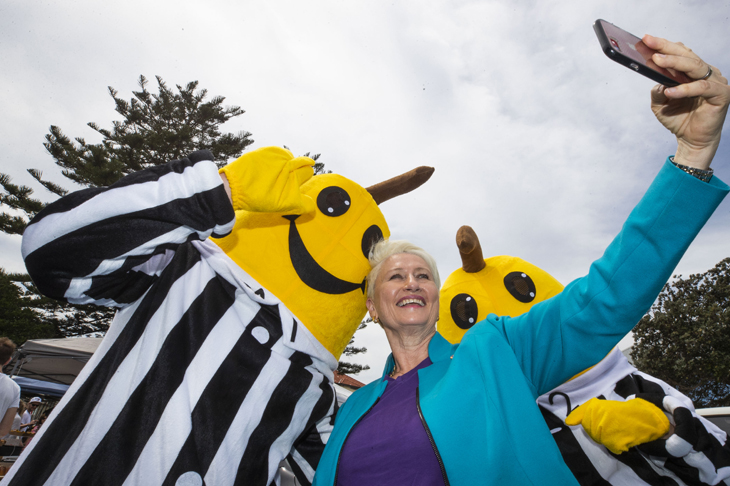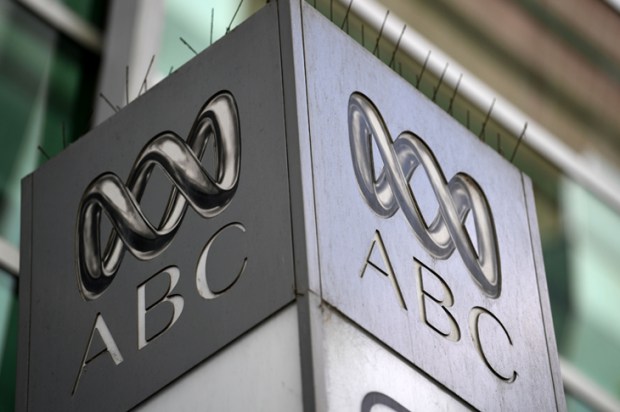The following is a sneak peek into a day in the life of an intern at the ABC, based on content that has been published either by the ABC or the media about ABC staff.
Congratulations! You have just started an internship at Australia’s public broadcaster, the ABC.
At 9:00am you are ushered into your manager’s office, who sits you down to run you through the ABC’s editorial guidelines that all staff must follow.
You’re asked to acquaint yourself with the updated editorial guidelines which were introduced late last year under the banner of ‘Hate speech, terrorism and mass killings’. It reads ‘It is important to avoid language that alienates religious or ethnic groups, therefore, do not speak of “us” and “our values” in ways that exclude minorities.’
You question this, saying ‘What? I thought we were all equal. Isn’t it unifying to include everyone in our portrayal of Australia?’ Your manager chuckles sarcastically and continues to read from the guidelines. ‘Racism is now routinely applied to prejudice or discrimination based on a wide range of differences: ethnicity, skin colour, religion, language, etc.’
At 10:30 am you’re given your first task, which is to assist with the ABC Radio National program. This is a big current affairs program, so you’re very excited to get started on it.
Your job is to book guests, which should be easy. You decide that you will stick to the ABC’s charter and try to balance out guests from the left and right to ensure impartiality. But you find that your task is bogged down in red tape.
You are handed a ‘content tracker’ which is part of the ABC’s Diversity & Inclusion Plan. ‘The ABC must look and sound like modern Australia, and include all Australians in what we do.’ Thinking that seems pretty straight forward and without reading any further, you go to book Mark Latham, an elected member of the NSW parliament, on the program.
Within minutes however, you’re tapped on the shoulder by your manager, who asks ‘Didn’t you read the content tracker? We don’t mean diversity of opinion. The content tracker allows you to see how you are including groups which might be under-represented in our content, including women, Indigenous and Torres Strait Islanders, people from CALD backgrounds, LGTBI people, and people with disabilities.’
‘Isn’t it dehumanising and undignified for the ABC to be making important editorial decisions based on someone’s skin colour or superficial attribute rather than on their merit, hard work and journalistic integrity?’ you ask.
Your manager points you to the following paragraph in the ABC’s Editorial Guidelines: ‘Electoral success does confer some legitimacy in a democracy – it is hard to argue that support sufficient to elect politicians to federal parliament does not represent a “significant perspective in the community.” However, it does not exempt politicians from being vigorously challenged, nor does it oblige the ABC to broadcast hate speech. However, fringe political players should not be elevated simply because they create controversy.’
‘This is why we cannot invite Mark Latham onto the program,’ he says.
At midday, the Community and Public Sector Union delegate addresses staff, calling on them to reject the six-month pay freeze that the rest of the public service has taken in the wake of the coronavirus pandemic. ‘You deserve the $5 million worth of pay rises. It doesn’t matter that the rest of the media has shed jobs at a great pace. We are part of the cultural fabric of Australia, and it doesn’t matter that 606,000 Australians have lost their jobs in the private sector. We can keep saying “we are all in this together” while taking a 2 per cent pay rise, because you deserve it!’
At 3:00 pm you get sent back to the main office and you take a seat next to Barbara Heggen, a radio producer who has started the ‘Climate Crisis Advisory Group’. Barbara takes you along to a working group meeting. Armed with a notepad and pen you get ready to note down healthy discussion about the science and challenging of orthodox views. Barbara introduces the group’s aim, which is to; ‘Gather together the brains trust of ABC staffers to develop ways to report on and inform Australians about the climate crisis using a solutions journalism approach. To report back to ABC Management our ideas and strategies for responding to the climate crisis both internally and externally.’
The first item on the agenda is what ABC staff members can do around the office to make a more climate friendly workplace. Hands go up and voices start bemoaning the lack of solar panels in the Melbourne Southbank studios. One staff member states, ‘There are so many other things that should be happening but aren’t in this building… We should be encouraging the café on site to charge much more for coffees in takeaway containers and a bigger discount for keep cups.’ Another staff member from Hobart pipes in on the teleconference, ‘We have a large surface area of roofing, perfect for solar panels.’ At this juncture, you decide to ask a question. ‘Isn’t Tasmania 100 per cent Hydro? Why would we need solar panels if its 100 per cent renewable anyway?’ The group stares at you for a moment and moves on.
Another voice asks from Brisbane, ‘Sometimes when I’m on the late shift in Brisbane I go around and try to find remotes to turn the TVs off. They’re everywhere and no one is watching them, often during the day… Best to avoid hypocrisy where possible.’ ‘But surely, it’s the main job of staff at a news station to monitor what’s on our channel?’ you ask, but once again, you are ignored.
The staff move on to discuss their journalism on the topic of climate change. Many speak glowingly of what is commonly referred to as an internal newsletter, the Guardian Australia, and their model of ‘advocacy journalism’. ‘We need a solutions-based journalism approach. Why don’t we get one of the ageing Chaser boys to do a documentary about how our pesky politicians have failed on climate?’ ‘Great idea!’ The room applauds.
You have had enough. You stand up and object: ‘How can we expect the ABC to cover very serious policy discussions like the cost of climate policies impartially, when so many of you hold an activist position on the topic? Just last year we had what many journalists in this room described as “the climate election”. Voters have rejected divisive climate policies at election after election. You are funded by taxpayers to be impartial, yet you are clearly seeking to push a narrative, that is against the ABC’s charter.’
The room erupts with laughter.
At 5:00pm you then decide the public broadcaster is not for you and quit. It is clearly not your ABC, it’s not even ours, it’s theirs.
Got something to add? Join the discussion and comment below.
Get 10 issues for just $10
Subscribe to The Spectator Australia today for the next 10 magazine issues, plus full online access, for just $10.
Evan Mulholland is Director of Communications at the Institute of Public Affairs.
You might disagree with half of it, but you’ll enjoy reading all of it. Try your first month for free, then just $2 a week for the remainder of your first year.














Comments
Don't miss out
Join the conversation with other Spectator Australia readers. Subscribe to leave a comment.
SUBSCRIBEAlready a subscriber? Log in